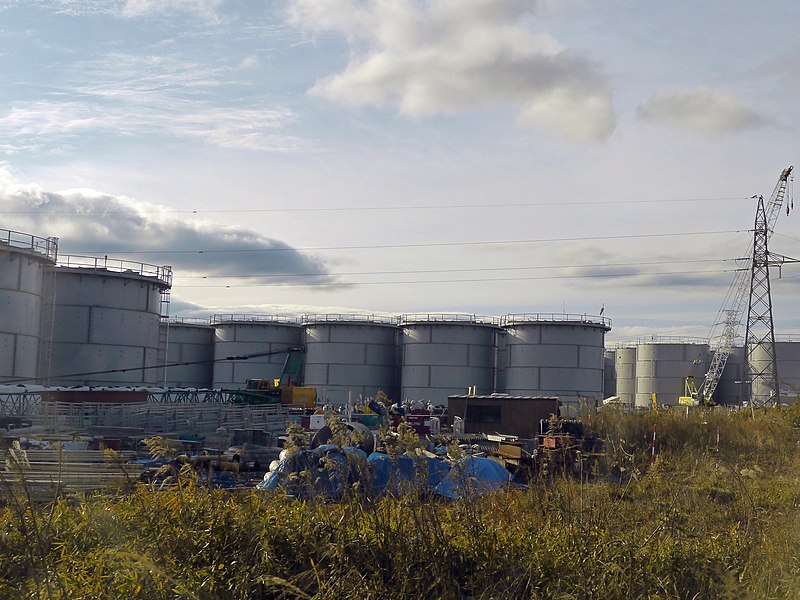News release
From:
Expert Reaction
These comments have been collated by the Science Media Centre to provide a variety of expert perspectives on this issue. Feel free to use these quotes in your stories. Views expressed are the personal opinions of the experts named. They do not represent the views of the SMC or any other organisation unless specifically stated.
Associate Professor Tony Hooker is Director of the Centre for Radiation Research, Education and Innovation at The University of Adelaide
I would like to reiterate that the release of tritium from nuclear facilities into waterways has and is undertaken world-wide with no evidence of environmental or human health implications. I welcome the news about the impending release and support Japan’s decision to commence disposal and believe they have a robust radiation management plan that has been approved by the IAEA, the Japanese NRC as well as other radiation protection agencies world-wide.
I think with the likely comprehensive independent monitoring of the environment to occur around the release site of Fukushima, that this will hopefully alleviate some of the fear that has been generated around this issue.
Associate Professor Nigel Marks is a Professor in Physics & Astronomy at Curtin University
In a couple of days, Japan will start releasing treated wastewater from the Fukushima nuclear power plant into the Pacific Ocean. The main problem with the release is that it sounds bad. But it actually isn’t. Similar releases have occurred around the world for six decades, and nothing bad has ever happened.
The radioactivity in the Fukushima water is almost entirely tritium, a type of hydrogen. For scale, the Pacific Ocean contains 8,400 grams of pure tritium, while Japan will release 0.06 grams of tritium every year. The minuscule amount of extra radiation won’t make the tiniest jot of difference. A lifetime's worth of seafood caught a few kilometres from the ocean outlet has the tritium radiation equivalent of one bite of a banana.
Opponents of the release have suggested unrealistic alternatives and mustered a range of counterarguments, but none of these withstand scientific scrutiny. In truth, almost everything is radioactive, including the Pacific Ocean, where tritium accounts for a modest 0.04% of total radioactivity. Despite the controversy, ocean release is the only practical option at Fukushima, and every conceivable step has been taken to choose the best decision that considers all factors.
Tony Irwin is an Honorary Associate Professor at the Australian National University. He is Technical Director of SMR Nuclear Technology Pty Ltd and a Past Chair of Engineers Australia Sydney Division Nuclear Engineering Panel
There is an understandable perception that all radioactive materials are always and everywhere dangerous, particularly liquid waste, but not all radioactive materials are dangerous. The Fukushima water discharge will contain only harmless tritium and is not a unique event. Nuclear power plants worldwide have routinely discharged water containing tritium for over 60 years without harm to people or the environment, most at higher levels than the 22 TBq per year planned for Fukushima.
For comparison the Kori nuclear plant in South Korea discharged 91 TBq in 2019, more than four times the planned Fukushima discharge and the French reprocessing plant at La Hague discharged 11,400 TBq in 2018 into the English Channel, more than twelve times the total contents of all the tanks at Fukushima, again without harm to people or the environment.
It is important that the International Atomic Energy Agency (IAEA) has carried out an independent and transparent review of the procedures and equipment for discharges and its comprehensive report issued in July 2023 confirms that the release will have a negligible radiological effect on people and the environment. The IAEA will maintain a continuous on-site presence on site to independently monitor discharges.
More tritium is created in the atmosphere than is produced by nuclear power reactors, and it then falls as rain. Ten times more tritium falls as rain on Japan every year than will be discharged. The discharge limit for release of radioactive water at Fukushima is 1/7th of the World Health Organisation standard for drinking water. The discharge is ultra-conservative.
Professor Robert Richmond is Director of the Kewalo Marine Laboratory at the University of Hawaii at Manoa and a member of the Expert Scientific Advisory Panel to the Pacific Islands Forum
Japan’s decision to go forward with the release of the treated, radioactively contaminated water is not surprising, but certainly disappointing. Both Japan and the IAEA can turn a challenging situation into an opportunity to explore and develop better approaches to nuclear disasters than ocean dumping.
Considering the documented deteriorating conditions of ocean health and that of those communities who depend on it, we should expect far better from those in positions of authority and responsibility. This decision violates the spirt of the UN Ocean Decade and the recently passed UH High Seas Treaty, as well as the rights of indigenous Pacific communities.
This is not the first such disaster nor will it be the last, and this decision undercuts the premise that the nuclear power industry is viable and responsible in its ability to deal with its own mistakes and wastes. As the saying goes, those who do not learn from history are forced to repeat it, and this action will be to the detriment of future generations who will likely suffer the consequences of decisions that are made based on expediency, politics, and profit above people.



 Australia; Pacific; SA; WA; ACT
Australia; Pacific; SA; WA; ACT


